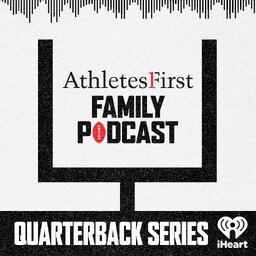How I Negotiated Over $1 Billion in Player Contracts In a Year! | Athletes First Family Podcast Ep-6
In this episode of the Athletes First Family Podcast, we sit down with David Mulugheta, the powerhouse agent behind NFL quarterbacks Deshaun Watson and Jordan Love. Joined by Brian Murphy and AJ Stevens, we explore David’s path from Dallas, Texas, to becoming one of the most influential agents in the game.
David shares how family, resilience, and strategic career moves shaped his journey. Growing up with immigrant parents who prioritized education and hard work, he developed the mindset that would later propel him to success. From recognizing the importance of representing quarterbacks to negotiating record-breaking deals, David’s story is one of vision, self-belief, and determination.
We also dive into representation and diversity, as David sheds light on the lack of African American agents in the quarterback space and his commitment to changing that narrative. Hear how he signed Deshaun Watson after a national championship win, the career-defining moments that followed, and the lessons he’s learned along the way.
Join us for an inspiring conversation that breaks down what it takes to become a top sports agent, the power of betting on yourself, and the future of athlete representation.
#nfl #nflpodcast #deshaunwatson
Learn More About Athletes First:
https://athletesfirst.net
Follow Us On Instagram:
https://www.instagram.com/athletesfirst
Subscribe To Our YouTube:
https://www.youtube.com/@AthletesFirstNetwork
In 1 playlist(s)
Athletes First Family: Quarterback Series
What happens in the room when billion-dollar NFL quarterback contracts are negotiated? Athletes Firs…Social links
Follow podcast
Recent clips

How Dak Prescott Became the Highest-Paid NFL Player | Athletes First Family Podcast Ep-10
1:01:06

How Todd Became A Forbes List Top NFL Agent | Athletes First Family Podcast Ep-9
57:30

Inside the Mind of an NFL Agent | Athletes First Family Podcast Ep-8
50:38
 Athletes First Family: Quarterback Series
Athletes First Family: Quarterback Series